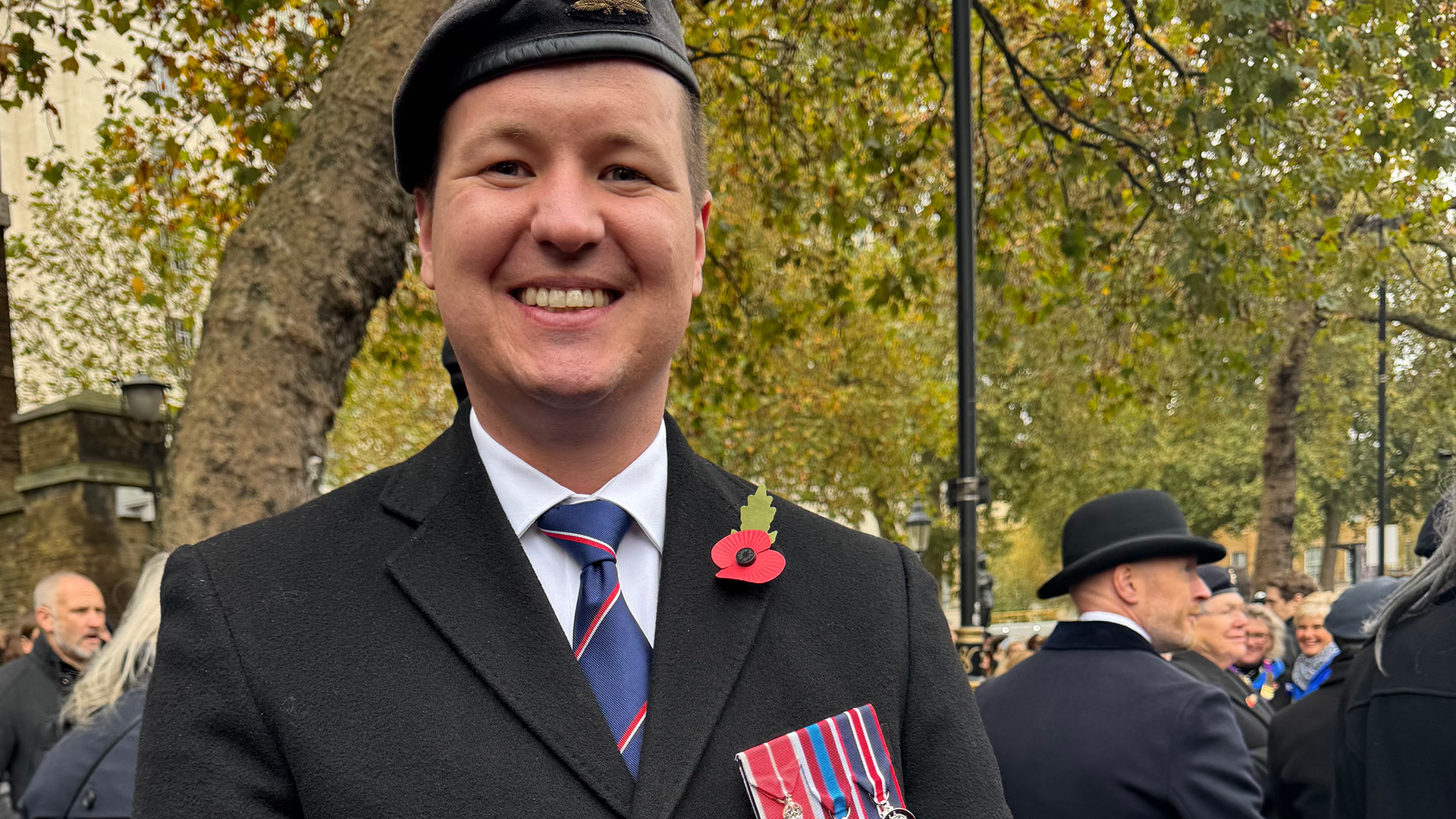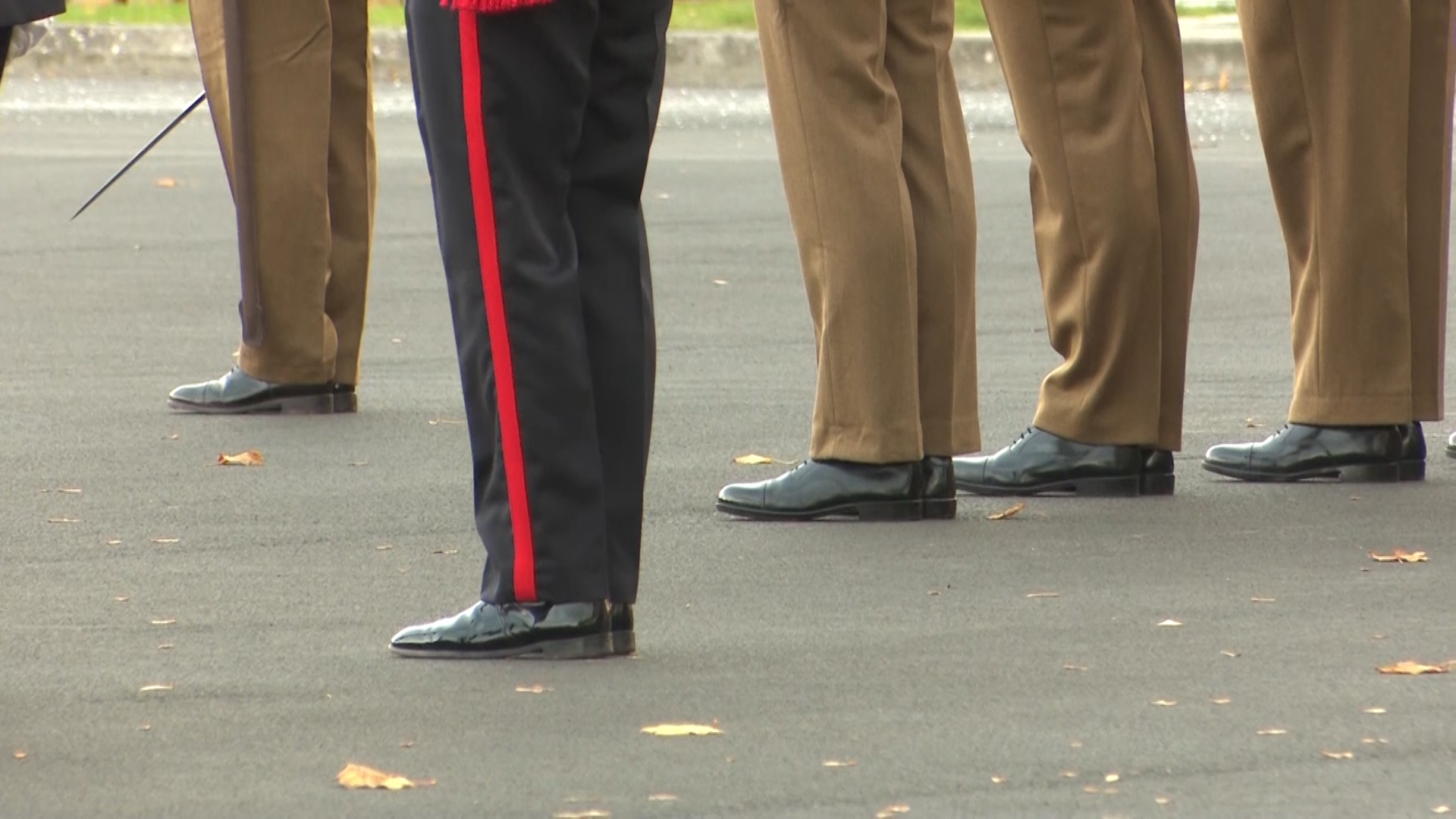
Exclusive: Royal Navy throws out discrimination complaint without investigating

A Royal Navy officer who was described as having a "profound effect" on the military has had his service complaint dismissed without it being investigated.
Lieutenant Commander Oli Brown, who was awarded an MBE in recognition of the policy work he led in the Armed Forces, submitted allegations of discrimination and career mismanagement to Admiral Sir Ben Key, then First Sea Lord, in early 2024.
At the time, Sir Ben, who recently stepped down as the head of the Royal Navy, directed that the concerns be handled through the military's internal redress system – the Service Complaints process.
But more than a year on, the Navy has told Mr Brown his complaint will not be progressed, describing it as "inadmissible".
The case shines a light on the way formal grievances are looked into in the military, which has drawn criticism in the past from advocacy groups and the Service Complaints Ombudsman for the Armed Forces, Mariette Hughes.
Ms Hughes said she recognised "trust and confidence in the system remain low," but was unable to comment on Lt Cdr Brown's case specifically.
BFBS Forces News has seen a copy of the original complaint Lt Cdr Brown submitted in which he accused the senior service of discrimination, career mismanagement, and poor treatment he says he received after disclosing changes to his health.
Sir Ben Key responded by letter, acknowledging the seriousness of the concerns and stating that, while he understood Lt Cdr Brown may be reluctant to enter into further bureaucracy, a formal complaint was the best route to achieve a fair outcome.
"Whilst I recognise that you may not wish a further administrative process, I judge that it is the best way to properly and fairly investigate any matters where you feel you have personally suffered a wrong as a result of your service," Admiral Sir Ben Key wrote in a letter to Lt Cdr Brown.
But in recent weeks, Lt Cdr Brown was informed by the Navy that, after more than a year of internal deliberation, his complaint would not proceed to the investigation stage.
"I'm shocked and surprised," Lt Cdr Brown said. "The system is not rational or functional, and it doesn't work."

Among the reasons given for rejecting the complaint was that it had not been submitted within the required three-month time window.
However, Lt Cdr Brown disputes this, saying his original correspondence to the First Sea Lord, dated within that timeframe, was intended to initiate the formal process.
It went as far as including the words service "complaint".
"I made my statement of complaint within a matter of days of the final incident, by writing the full situation, how I was wronged, the redress I was seeking, a timeline of events, and addressed it to an appropriate person – the head of the Royal Navy," Lt Cdr Brown told BFBS Forces News.
In the letter rejecting his complaint, the Navy also stated that the complaint lacked named individuals responsible for the alleged mistreatment. But Lt Cdr Brown says his grievance is directed at the institution's systems and structures, not specific people – and believes this should not be a barrier to it being formally investigated.
"I did this with full knowledge of where I was standing. I don't hold any individuals at fault for the events that occurred," Lt Cdr Brown said.
"I consciously was making a complaint against the service, the system and policy – which is where I feel responsibility sits."

The Service Complaints Ombudsman for the Armed Forces is an independent watchdog tasked with overseeing the fairness and efficiency of the complaints system.
But a common misconception of the process is that the Ombudsman investigates complaints directly.
In fact, complaints are first handled by the respective service branch – with the Ombudsman only able to step in if an individual believes their case has not been handled properly, including in cases where complaints are deemed inadmissible.
"I have respect for those investigating service complaints," Lt Cdr Brown said, adding, "they do so with integrity and open minds.
"Could it be better? Yes. Because it doesn't have that independent scrutiny."
In her most recent annual report as the Ombudsman, Ms Hughes wrote that the military complaints process remained "not efficient, effective or fair" – the ninth year in a row this assessment had been reached by her office.
Commenting on her findings, Lt Cdr Brown said the system didn't just need improving – "it needs to be overhauled".
A respected voice in defence
Lt Cdr Brown was recognised at senior levels for the influence of his work. In his letter to Brown, Admiral Sir Ben Key underlined this, offering gratitude for his contribution to the Armed Forces.
"I want to acknowledge the profound effect that you have had on enhancing policy within defence," he wrote.
"Your work and determination have successfully enhanced the lives and experiences of service personnel."
Lt Cdr Brown, who has since left the Royal Navy, confirmed he has referred his case to the Ombudsman for a review.
"I'm committed to seeing this complaint through to its conclusion," he insisted, adding that "a thorough investigation is essential not only for personal accountability but to support wider institutional improvement."
"We are dedicated to delivering a fair, efficient, and effective Service Complaints system, ensuring that all personnel have the right to engage with the process," a Royal Navy spokesperson said.
"The service complaints system is extensively documented and is supervised by an impartial ombudsman with a transparent appeals procedure."









